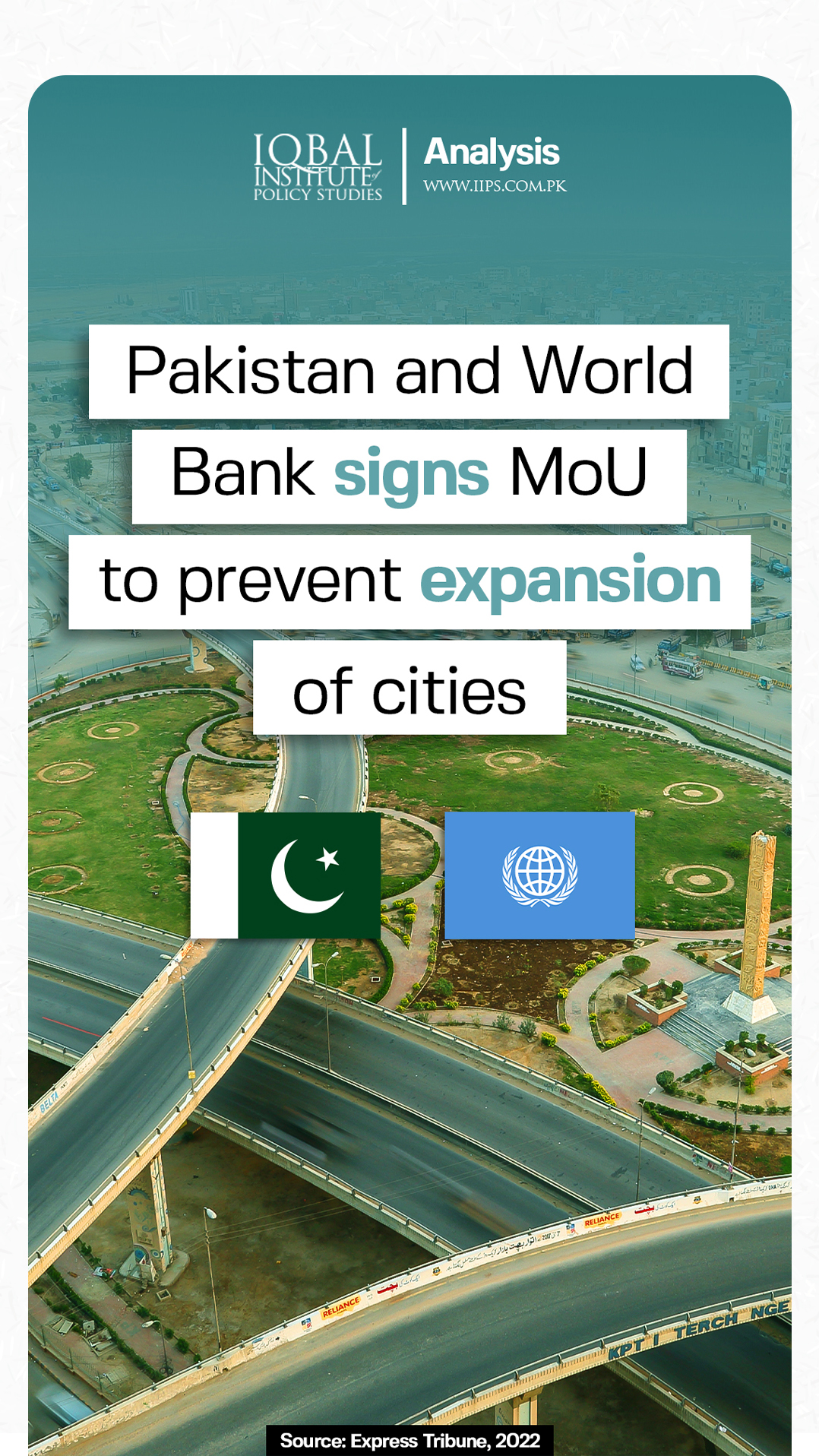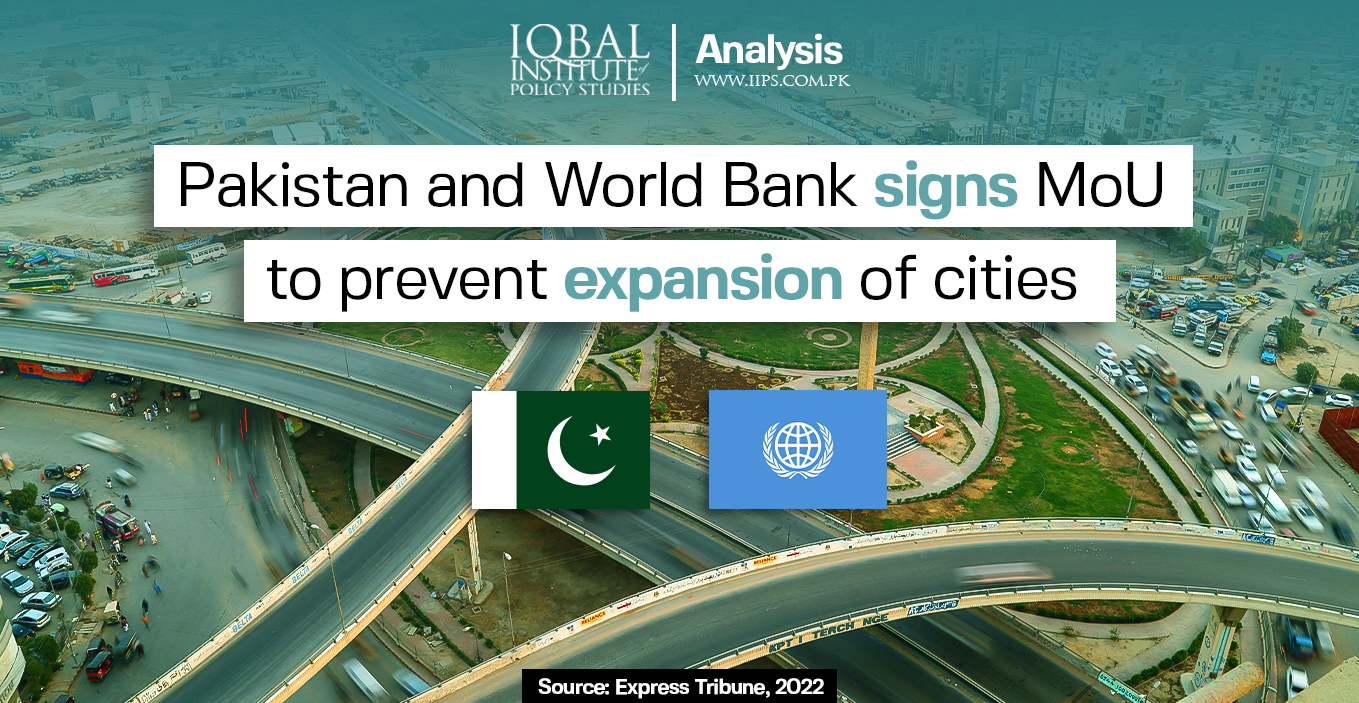The Government of Pakistan and the World Bank have signed a Memorandum of Understanding (MoU) to prevent the expansion of cities and tackle challenges caused by climate change. Expansion of urban areas causes deforestation, reduction of atmospheric water, and increased greenhouse gasses. The initiative has been taken to reduce the expansion of urban areas to certain limits because it will not be feasible for the authorities to keep the environment clean and protect rivers and canals from getting polluted.
Pakistan is urbanising at a rate of 3%, the fastest pace in South Asia, with a population census of about 37.17%. However, excessive urbanisation resulted in public health issues, insufficient space for public utilities, and depletion of underground water. High population density makes the environment unstable, causing water pollution and air pollution due to the emission of greenhouse gases and smoke from transport vehicles. According to the World Health Organisation (WHO), approximately 6.5 million people die due to indoor and outdoor air pollution, and in developing countries, 90% of deaths are related to air pollution.
However, the incumbent government is determined to tackle the challenges caused by climate change. Prime Minister Imran Khan’s Ten Billion Tree Tsunami project plays a significant role in increasing green cover in the country and protecting the country from global warming. Pakistan has also launched several other projects, including Ecosystem Restoration Fund and Protected area initiative to support nature-based solutions to climate change and create green jobs. Many foreign countries have signed agreements on nature with Pakistan due to its commitment and practical implementations of green solutions.



Leave a Reply